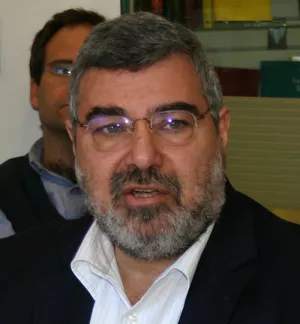Thursday night it was in Nice, France. Tomorrow it will be in another city, on another continent. In the last month, dozens of terror attacks have killed hundreds of people across the world. Everything and everyone is a legitimate target for these new killers, who welcome death and in doing so totally confuse everyone else in the world who has tried to stop them.
With every new attack, it becomes more and more clear that the world is dealing — or not dealing, actually — with three dimensions of this now routine phenomenon of mass killings of innocent civilians. The three elements are, 1) the conditions of individuals and societies around the world that ultimately create the monsters who carry out these attacks, and recruit and train others to do the same, 2) the largely ineffective political and security measures that governments around the world take in response to the expanding terrorism threat, and, 3) the emphasis on the centrality of the Islamic religion that many of the terrorists themselves express, but that also shapes the attitudes and policy responses of governments that respond to terrorism, particularly in seeing “counter-narratives,” the assertion of “moderate Islam,” the need for “a reformation in Islam,” and other such approaches that have proven to be wildly irrelevant or ineffective.
It is alarming and surprising — actually, it’s not really surprising, if you note that two flawed characters like Hillary Clinton and Donald Trump are evenly matched in the U.S. presidential election, the American secretary of state in Moscow seeks a deal with Russia for these two powers that fuel the Syria war to work together in that same war, Israel continues to expand its settlements and destroy Arab homes in occupied Palestinian lands, credible international reports document that hundreds of Egyptians have “disappeared” while the state’s security prisons hold somewhere between 40,000 and 60,000 prisoners, mostly for their political views rather than for any criminal acts, Yemen continues to collapse in a wasteful and unnecessary war that has solved nothing and created another 20 million or so hungry and desperate civilians, and major global powers continue to support autocratic Arab and Asian leaders with financial and military aid, among other realities of our era — it is alarming but not so surprising that on these three central components of the global terror scourge, the response of Arab, Western and virtually all other governments has not only failed to stop terrorism, it has allowed terrorists to vastly expand the scope, adherents, and impact of their criminal world.
Every terror attack generates anger, shock, and powerful emotional and political commitments of our indomitable will not to be terrorized, to stand firm and strong, to affirm liberty, free speech, and pluralism. We are all, sincerely, Boston, Paris, London, Nice, Orlando, Dacca, New York, Baghdad, and a hundred other cities around the world, and a hundred more that will be attacked in due course. We will stand with them all in a steel chain of humanity against barbarism.
Then what? What happens when, after another dozen major attacks, the chain of their barbarism outpaces the chain of our human solidarity? When is the permissible moment to start asking if we can muster as much wisdom and realism to fight terror as we do to harness emotions of solidarity? The recent increasing pace and widening geographic scope of terror suggest we are dealing with a qualitatively new kinds of terrorists — but the policy responses of governments and the emotional responses of entire societies suggest we have no idea how to respond to quell this monster.
We incompetently and stubbornly hold on to our failed analytical and policy responses to terror, insisting on doing almost nothing of consequence in the three arenas that I mentioned above. We see no serious attacks on the many underlying drivers of dysfunctional governance, economy, and statehood that transform ordinary young men in the South into criminal bombers. We see no serious questioning of whether a primary focus on militarism reduces or increases the terror threat. We see no credible willingness among most governments, and most of their associated media and intellectual spheres, to transcend Islam as the main analytical window into the world of terror.
Not surprisingly, terror groups expand and evolve their operations, while having no difficulty finding thousands of new recruits to wage their terrible and sick war. When does it become permissible to ask how long the world must put up with this steady stream of death and pain, before we demand that our leaders in the South and North try to be more intelligent, honest, and effective in tackling the terror problem at its roots? Anger, square-jawed determination, chronic bewilderment, serial incompetence, and prioritized heavy-handed and counter-productive militarized policies managed with authoritarian partners around the world are signs of cumulative failure. Can we ask for a more serious response now, after Nice? Or wait a few more weeks, for a few more attacks, and ask then?
Khouri, Rami. “When is the moment to ask for more effective anti-terrorism policies?.” Agence Global, July 16, 2016





